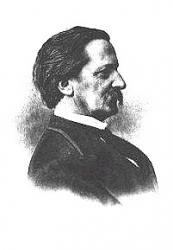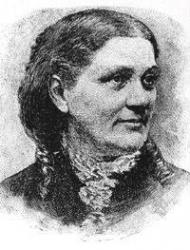Planning worship?
Check out our sister site, ZeteoSearch.org,
for 20+ additional resources related to your search.
- |
User Links
Search Results
Universal Hymns

Publication Date: 1894 Publisher: Thomas Todd Publication Place: Boston, Mass. Editors: Julia W. Frothingham; Thomas Todd
Universal Hymns
With wider view come loftier goal
Author: S. Longfellow Appears in 3 hymnals
With wider view come loftier goal
Little by little the time goes by
Author: Leon Herbert Appears in 5 hymnals
Little by little the time goes by
Ring out, wild bells, to the wild sky
Author: Tennyson Hymnal: UHCN1894 #1 (1894) Languages: English
Ring out, wild bells, to the wild sky
I said it in the meadow path
Author: Lucy Larcom Hymnal: UHCN1894 #2 (1894) Languages: English
I said it in the meadow path
O Life that maketh all things new
Author: S. Longfellow Hymnal: UHCN1894 #3 (1894) Languages: English
O Life that maketh all things new
Josiah G. Holland

1819 - 1881 Person Name: J. G. Holland Hymnal Number: 163 Author of "I count this thing to be grandly true" in Universal Hymns Holland, Josiah Gilbert, was born at Belchertown, Massachusetts, July 24, 1819. He was for some time on the staff of the Springfield Republican, and became in 1870 the editor of Scribner's Magazine. He has written several successful books, and some poetical pieces. One of the latter, "For summer's bloom, and autumn's blight" (Praise in and through all things), was included, from Bitter Sweet, 1858, in the Boston Unitarian Hymn [and Tune] Book for the Church & Home, 1868. He died Oct. 12, 1881.
--John Julian, Dictionary of Hymnology (1907)
===============
Holland, J. G. , p. 529, ii. His Christmas Carol, “There's a star in the sky," from The Marble Prophecy and other Poems, 1872, is included in the American Methodist Hymnal, 1905. He died Oct. 12, 1881. [Rev. L. F. Benson, D.D.]
--John Julian, Dictionary of Hymnology, New Supplement (1907)
Josiah G. Holland
Bernard Barton

1784 - 1849 Hymnal Number: 66 Author of "Walk in the light! so shalt thou know" in Universal Hymns Barton, Bernard, commonly known as the "Quaker Poet," was born in London Jan. 31, 1784, and educated at a Quaker school at Ipswich. In 1798 he was apprenticed to Mr. S. Jesup, a shopkeeper at Halstead, Essex, with whom he remained until 1806, when he removed to Woodbridge, Suffolk, and entered into business with his brother, as a coal and corn merchant. On the death of his wife at the end of the first year of their married life, he proceeded to Liverpool, where he acted as a private tutor for a short time. He returned to Woodbridge in 1810, where he secured an engagement in the local bank of the Messrs. Alexander. This appointment he held for 40 years. He died at Woodbridge, Feb. 19, 1849. During the same year his daughter published his Poems and Letters, with a Memoir. His poetical works were numerous, including:—
(1) Metrical Effusions , 1812; (2) Poems by an Amateur, 1818; (3) Poems , 1820; (4) Napoleon, and other Poems, 1822; (5) Poetic Vigils, 1824; (6) Devotional Verses founded on Select Texts of Scripture, 1826; (7) A Widow's Tale, 1S27; (8) New Year's Eve, 1829; (9) The Reliquary, 1836; (10) Household Verses, 1845. A complete list of his works is given in Joseph Smith's Descriptive Catalogue of Friends' Books, Lond., J. Smith, 1867, vol. i. pp. 196-200.
From these works about 20 pieces have come into common use as hymns. These are found principally in the Scottish Evangelical Union Hymnal, on the one hand, and various American Unitarian collections on the other. The best known are, “Lamp of our feet, whereby we trace," and "Walk in the light, so shalt thou know." From his Devotional Poems, &c, 1826, the following have passed into the Scottish Evangelical Union Hymnal, 1878:—
1. Fear not, Zion's sons and daughters. Gracious Promises. This is part of a poem on Isaiah xliii. 1, “Fear not, Jacob, tabulated."
2. Hath the invitation ended? Invitation.
3. See we not beyond the portal? Present vision Imperfect. This is part of the poem on 1 Cor. xiii. 12, “Dim and dark our present vision."
4. Those who live in love shall know. Peace.
5. Would'st thou share this benediction! Poor in Spirit.
In addition, there are also in various collections:—
6. Around Bethesda's healing wave. Consolation. This is on pp. 182-185, in his Napoleon, and other Poems, 1822, in 10 stanzas of 6 lines. A cento therefrom is given in a few American hymnals, including Mr. Beecher's Plymouth Collection, No. 746, as, "The waters of Bethesda's pool."
7. There is a life more dear. Spiritual Life. From the Devotional Verses, 1826, p. 96, into Kennedy, 1863, No. 1177, with the omission of stanza v.
8. Say not the law divine. Spiritual Law. Also from the Devotional Verses, 1826, p. 34, into various American hymnals, generally Unitarian, as the Hymn and Tune Book, Boston, 1868, No. 342, &c, where, however, it is rewritten from an irregular metre to S.M. This had previously appeared in Hedge and Huntington's Hymns for the Church of Christ, Boston, U.S., 1853.
Other hymns, given in great part in American Unitarian collections, are annotated under their respective first lines.
-- John Julian, Dictionary of Hymnology (1907)
======================
Barton, Bernard, p. 116, i. Other hymns in common use:—
1. God made the country, yet in scenes. Country Life. This begins with stanza iii. of a poem "Addressed to a Friend in London" in The Reliquary, 1836, p. 83.
2. Lamp of our feet! whereby we trace. Holy Scriptures, published in The Reliquary, 1836, p. 116, in 11 stanzas of 4 lines. It is in common use in its full form, and also abbreviated as (1) "Word of the ever-living God"; and (2) "Word of the everlasting God." In extensive use.
3. There is a Friend more tender, true. Jesus, the Friend. This begins with stanza iii. of "But yet, however cheerless seem," in his Poems & Letters, 1853, p. 254.
4. Walk in the light! So shalt thou know. (Walking in the Light.) Published in his Devotional Verses, 1826, p. 242, in 6 stanzas of 4 lines. It is found in many modern collections, and is one of the most popular of his hymns.
5. We journey through a vale of tears. Heaven Anticipated. In his Poems & Letters, 1853, p. 193.
Of these hymns, Nos. 3, 5, are of an earlier date than the Poems & Letters of 1853; but we have failed to find them in Barton's earlier works.
--John Julian, Dictionary of Hymnology, Appendix, Part II (1907)
Bernard Barton
Lucy Larcom

1824 - 1893 Hymnal Number: 2 Author of "I said it in the meadow path" in Universal Hymns Larcom, Lucy, was born at Beverley Farm, Massachusetts, in 1826. Her Poems were published in 1864. Her hymn, "When for me the silent oar" [Death Anticipated), was published in 1868. She died in 1893.
--John Julian, Dictionary of Hymnology, Appendix, Part II (1907)
===============
Larcom, Lucy, p. 1576, ii. The extended use of this writer's hymns justifies a more detailed account of her life and work than is given on p. 1576. She was born in 1824, and worked from 1837-45 in the mills of Lawrence, Mass., then engaged in elementary teaching 1846-49, became a student at Monticello Female Seminary, Alton, Ill., 1849-52, and then entered upon advanced teaching in higher-class schools, and literary work. She edited with J. G. Whittier, Child Life in Poetry, 1871; Child Life in Prose, 1873; Songs of Three Centuries, 1875, &c. Her own works are Poems, 1869; Childhood Songs, 1875; Wild Roses of Cape Ann, 1881; Poetical Works, 1885; At the Beautiful Gate; And Other Songs of Faith, 1892. Her autobiography was published as A New England Girlhood. She died in 1893. In addition to "When for me the silent oar," of her hymns the following are in common use:—
i. From her Poems, 1869.
1. Hand in hand with angels. Angelic companion¬ship.
2. If the world seems cold to you.
3. When for me the silent oar. Death
ii. From her Wild Roses of Cape Ann, 1881.
4. In Christ I feel the heart of God.
5. O Spirit, "Whose name is the Saviour.”
in. From her Poetical Works, 1885.
6. Breaks the joyful Easter dawn, master.
7. Heavenly Helper, Friend Divine. Christ the Friend.
iv. From her At the Beautiful Gate, &c, 1892.
8. Draw Thou, my soul, O Christ. Looking to Jesus.
9. O God, Thy world is sweet with prayer. Prayer.
10. Open your hearts as a flower to the light.
11. King, happy bells of Easter time. Easter.
The above notes are from the British Museum copies of Miss Larcom's works.
--John Julian, Dictionary of Hymnology, New Supplement (1907)
Lucy Larcom


 My Starred Hymns
My Starred Hymns


